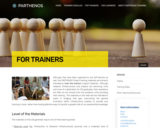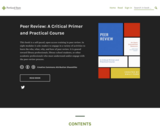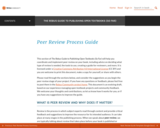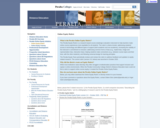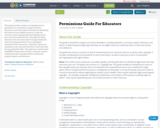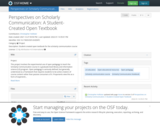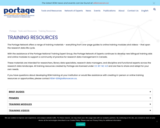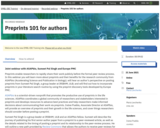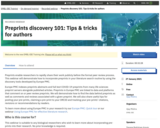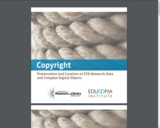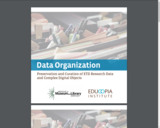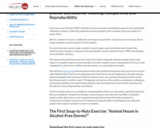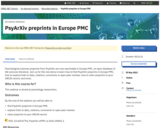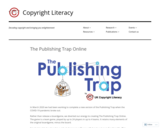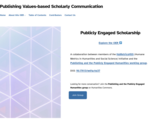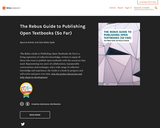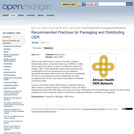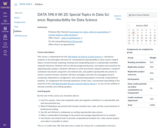Project:
This project involves the experimental use of open pedagogy to teach the Scholarly Communication course in a graduate-level library and information science (LIS) program. Open pedagogy is variously defined, but generally understood as a framework that requires students to be active creators of course content rather than passive consumers of it. Proponents view this as a form of experiential learning in which students demonstrate greater understanding of content by virtue of creating it.
Students in this course learn by doing; that is, they learn about scholarly communication by participating in the process. Each student is required to develop a chapter—on a scholarly communication topic of their choosing—to be included in an open access monograph. Following the semester, the text is published under a Creative Commons license on the University at Buffalo’s institutional repository as an open educational resource (OER), allowing for reuse or repurposing in future sections of the course or in similar courses in LIS programs at other institutions. To date, students have created the following open monographs: Perspectives on Scholarly Communication, Volume 1 (2019), Perspectives on Scholarly Communication, Volume 2 (2020); and Perspectives on Scholarly Communication, Volume 3 (2021). Support for the development and production of the third volume was provided by way of the following grant:
Scholarly Communication Notebook (https://lisoer.wordpress.ncsu.edu/notebook/); Institute of Museum and Library Services (https://www.imls.gov/grants/awarded/lg-36-19-0021-19. Investigators: Will Cross (wmcross@ncsu.edu); Josh Bolick (jbolick@ku.edu); and Maria Bonn (mbonn@illinois.edu).
Outcomes:
Immediate outcomes of the “learn by doing” aspect are clear. The experience of publishing engages students in the applied side of concepts they are introduced to by way of lectures, readings, and other class activities. This experience is invaluable for those entering the field academic librarianship, and particularly for those who will have scholarly communication responsibilities.
Immediate outcomes of the open pedagogy aspect are compelling. Research shows that students ascribe a positive learning experience to the implementation of this framework, and they hold for its continued use in future sections of the course. Students are enthusiastic in their embrace of creating renewable versus disposable coursework. They express great satisfaction with contributing to the professional literature, building the discipline’s nascent OER record, and having a publication to feature in their curricular and professional dossiers. The experience also resonates with students on a philosophical level; LIS students are particularly inclined to support activities that align with the field’s abiding ethic of “free to all”.
Long-term outcomes for the course are emerging. Select chapters from these volumes are used as required readings. In this way, students are contributing to professional discourse and to the ongoing development of LIS curricula. A roadmap for this ongoing experiment is given by way of the syllabus, assignments, lectures, rubrics, and other related materials in this Open Science Framework project.
